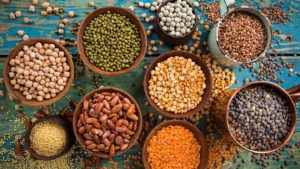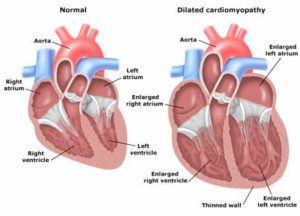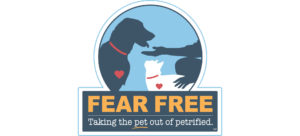Grain free diets have been very popular among pet owners within the last few years, but are they being marketed properly? Choosing what to feed your dog can be a very daunting task at hand – especially when there are so many different brands and types of dog food out there to choose from. Sometimes making the best choice for your beloved companion can be more than just a little bit difficult! A lot of new pet foods, also called “designer diets” (This includes grain free diets), are being formulated, and some of them seem to be based around very similar concepts to recent human diet trends. This is without considering the nutritional requirements of pets and how they differ greatly from ours. Below we will discuss the ins and outs of one of the newest diet trends on the market for dogs: Grain free diets, and if they are really healthy.
What is a grain free diet?
In the simplest aspect, a grain free diet is one that excludes grains from its makeup such as wheat, corn, barley, oats etc… and replaces them with peas, potatoes, lentils, chickpeas and other legume based foods. These ingredients are often listed among the first 10 ingredients of grain free diets, making them higher in proportion than other key ingredients and are usually listed before any essential vitamins or minerals.

Why are people feeding grain free diets to their pets?
Most owners who purchase grain free diets for their dogs often have very good intentions. Grain free diets are marketed in a way that does not readily inform owners of the risks associated with feeding this type of diet and can be misleading. Below are some common misconceptions and reasons why grain-free diets are often purchased:
- Allergies/Food Sensitivities: One of a few reasons pet parents will reach for this type of diet on the shelves of pet stores is because they believe it can reduce the risk of allergy related symptoms such as skin and gastrointestinal sensitivity to grains. Now, this is true for a small percentage of dogs, although it is much more common for a dog to develop an allergy to a protein (such as chicken or beef) before they would develop an allergy to a grain based ingredient.
- Weight Loss: Another common misconception is that grain free diets are good for weight loss in pets as they are typically formulated to be high in protein and low in carbohydrates – this idea is very similar to the recent diet trend called the “keto” diet in humans, which may or may not have assisted the pet food industry in marketing pet food brands to human owners. Now the idea of weight loss is great, although, with the increase in protein and reduction in carbohydrates a lot of extra calories in these pet foods are coming from fat sources or non-grain carbohydrate sources such as potatoes or legumes. With these added fat sources and calories, weight loss is never going to be guaranteed. On top of this, these non-grain carbohydrate sources unfortunately do not offer as much fiber as their grain counterparts, and can actually aid in creating defecation issues. There is also a great loss in nutrients from not feeding grain based foods such as iron, calcium and thiamine unless they are being supplemented in another form. Pets that require weight loss should speak with their veterinarian to discover what the best diet plan is for their individual needs and requirements as each pet varies.
- “Filler” Ingredients: One more common misconception is that grains are what is called a “filler” ingredient in the pet food industry. A filler is defined as an ingredient that adds bulk to food but serves very little or no nutritional value to the product. This is not accurate with grain inclusive diets, as grains do contain many important vitamins, minerals and essential fatty acids that are very important for the health of your dog and cannot be found in animal proteins or non-grain replacements. Sometimes, dogs who are lacking grains in their diets can develop deficiencies in these important nutrients. Research also shows that over 90% of all dogs are capable of digesting and utilizing the nutrients from grain inclusive foods and will benefit from these ingredients. Dogs are not obligate carnivores like cats and have historically eaten grains for centuries due to their scavenger attributes. Overall, grains do play an important role in the health and wellbeing of canines.
Is a grain free diet recommended?
Dogs are classified as omnivores – which means they require meat, plants and grains in their diet to thrive. Over the past few years, veterinary cardiologists, nutritionists, and the FDA have noticed an increase in a form of canine heart disease called Dilated Cardiomyopathy or DCM for short. DCM is a very serious and potentially fatal disease. Dogs who develop this disease have an enlarged heart and are unable to circulate blood throughout their body properly. Historically, this type of heart disease has many genetic factors involved and is often breed specific; common breeds that are more prone to developing DCM would include the Boxer, Doberman Pinschers, Irish Wolfhounds, Cocker Spaniels and Great Danes.
Around 2018-2019 there was a large spike in DCM cases being diagnosed in dog breeds that were not predisposed to the disease. Due to this spike, researchers looked into the concern and realized there was one common trait between a lot of the diagnosed dogs – they were being fed grain free diets. The foods that seem to be a primary concern are ones that list grain substitutes such as legumes (chickpeas, lentils etc..) as their top ingredients. Another concern with these foods is that there could be a link between grain free diets and a taurine deficiency which is an essential amino acid. Evidence suggests pets who are not receiving enough animal based proteins do not have the proper foundations to create this essential amino acid and are therefore becoming deficient. Now this isn’t to say for certain that grain free diets are solely the cause of this disease in non-predisposed pets as research is only in its early stages at this time, although it is important to be aware of the potential risks of feeding grain free diets in order to have the ability to make educated decisions when selecting pet foods.

What should you do if your dog is currently eating a grain free diet?
If your dog is currently consuming a grain free diet it is advised to monitor them for heart related illness – Although in a lot of cases, dogs who develop DCM will not develop clinical signs until the disease has progressed. Common signs of DCM may include the following:
- Rapid breathing when resting
- Easily fatigued
- Fainting
- Coughing or gagging
- Decreased appetite
- Weight loss
If you are concerned that your pet may be experiencing symptoms related to heart disease, please reach out to your veterinarian immediately.
Another option for pet parents who are feeding grain free diets and are concerned about the potential link with heart disease, is to transition to a grain inclusive diet. This would be a recommended option unless there is a medical reason not to, such as specific grain allergies, special nutrition requirements or sensitivities. If there is a grain based food allergy of concern, please discuss with your veterinarian for the best advice as there are other diets on the market that are nutritionally balanced and safe for your dog!
Another interesting part of the FDA’s study with grain free diets is that there are various reports to support the claim that dogs who were diagnosed with DCM and were being fed a grain free diet had a resolution in DCM symptoms and improved clinically after being transitioned to a nutritionally balanced grain inclusive food, and received taurine (amino acid) supplementation.
What diet should my pet be consuming?
Choosing the proper food for your canine companion can be a very difficult task for many – with so many brands and different types of dog food on the market it is almost impossible not to wonder if they are all being made safe and nutritionally balanced for your pet. If every diet was suitable for every pet the decision would be a lot easier! Unfortunately, pet foods are not created equally – In order to make the best decision possible for your pet, it is advised to seek the advice from your pet’s veterinarian prior to making food choices, or to book a nutrition consultation if you are unsure if what you are currently feeding is nutritious and balanced.
Take home message from this article: There is no current conclusive evidence that suggests grains in the diets of dogs causes harm to their wellbeing or health. Feeding a good quality, researched, grain inclusive and nutritionally balanced dog food for your dog may be a good idea if there is no medical reason to avoid them such as allergies. To avoid risks with grain free diets and other unbalanced diets, it is always best to discuss with your veterinarian the best choice for your pet for the safest and best results.
If you would like to know more about this topic or would like nutritional advice for your pet please feel more than welcome to give us a call today at 519-893-8937 to book a nutrition consultation with one of our lovely fear free certified Veterinarians!


